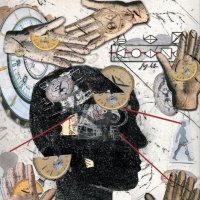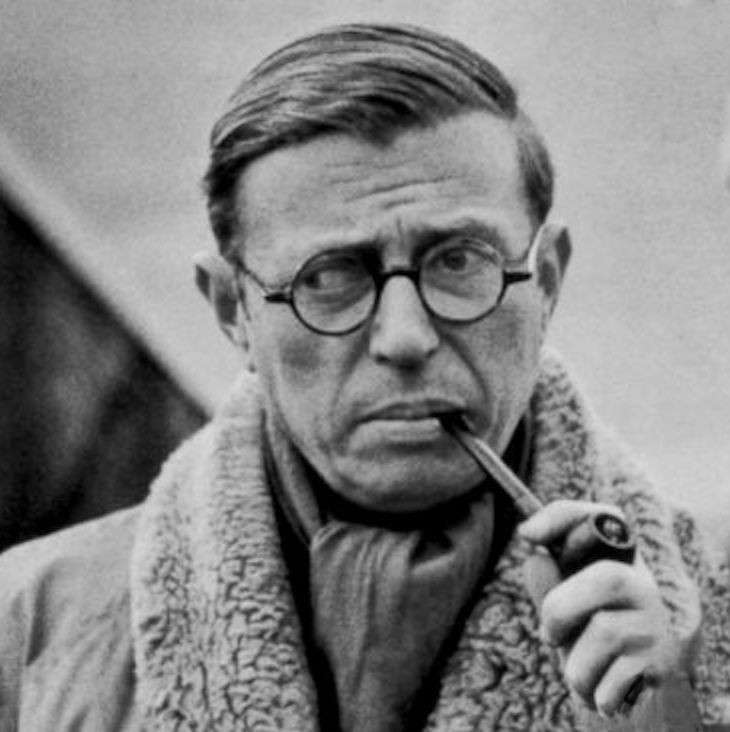Jean Paul Sartre
The Nothingness At The Heart Of His Philosophy
Empowering perspectives undermined by intellectual arrogance and spiritual ignorance
Jean Paul Sartre - An Overview
Jean Paul Sartre (1905–1980) is one of the better known philosophers of the twentieth century.
He will always be remembered for his espousal and advocacy of the existentialist philosophical perspective. Alongside Simone de Beauvoir, and Albert Camus he is rightly regarded as one of the leading lights of this modern movement.
At root, existentialism:
- Views human existence as having no meaning other than that which you choose to give it, and
- Is about living life authentically by making your own choices for which you alone accept total responsibility.
Sartre the Existentialist
His writings and lectures set the tone for intellectual life in the decade immediately following the Second World War as existentialism gained traction and became fashionable in the mid-20th century which was the post-war era of the rejection of absolutism, and a period of systemic challenges to the political and societal status quo. It was also the time of the emergence of the “swinging sixties”.
Existentialism provided a language for what was seen as the problem of life as a human being faced with a bewildering array of choices, in a world of absurdity devoid of any inherent meaning, and for which you hold total responsibility.
Jean Paul Sartre was born in Paris, where he lived for most of
his life. He studied philosophy at École Normale
Supérieure until 1929 when he met the existentialist feminist
philosopher with whom he enjoyed a lifelong partnership.
He spent most of the 1930s teaching in the northern French port city of Le Havre, until he was drafted into the French army at the outbreak of World War II in 1939 and where he served as a meteorologist but was captured and held as a prisoner of war until 1941.
After returning to German-occupied Paris, he had some limited involvement with the underground resistance to the occupation and wrote many of his best-known works, including "Being and Nothingness", the plays "No Exit" and "The Files", and the novel "The Age of Reason".
Sartre the Marxist
In 1946 he quit teaching and from this period onward, Jean Paul Sartre’s work and public image became far more political and particularly anti-colonial in tone. He became a committed Marxist.
Sartre the humanist
In 1945 Jean Paul Sartre delivered what has become his famously popular public lecture “Existentialism is a Humanism”
to an eagerly receptive crowd in Paris on 2th Oct 1945.
The transcript and analysis of this lecture continues to be the major introduction to his philosophy tom a non-specialist general audience.
Sartre allegedly regretted the publication of this lecture as it revealed his attempt to widen the social application of existentialism in response to his Communist and Catholic critics.
For a key point summary of existentialism [in simple English] together with a closer look at some of it's big ideas and their weaknesses and a practical assessment of how this aligns with the key themes on this site please see: Existentialism
Sartre the Christian
It is interesting to observe that in his last days Sartre could not live with the consequences of his own atheist existential beliefs and he became a Christian believer and called for a priest...
Resources:
The academic view of Jean Paul Sartre:
Stanford University Encyclopedia Of Philosophy
Criticism of Jean Paul Sartre:
Jean-Paul Sartre - The nothingness at the heart of his philosophy
The academic view of existentialism:
Stanford University Encyclopedia Of Philosophy
"...his philosophy was never felt, but all a pose."
[Clive James]
Return to: Existentialism
LATEST ARTICLES
Dealing With Distraction - Learning How To Live With Your "Attention Autopilot"
 Living With Your Attention Autopilot The good news about your Attention Autopilot is that it will keep you safe. It is continuously scanning your immediate environment for threats. The bad news is tha…
Living With Your Attention Autopilot The good news about your Attention Autopilot is that it will keep you safe. It is continuously scanning your immediate environment for threats. The bad news is tha…The Time Of Your Life - Recognising Moments Of Alignment For Action
 How will you recognise your moment of alignment for action? In this article I want to look at our relationship with time and in the context of the two main themes of this site, firstly as a thinking s…
How will you recognise your moment of alignment for action? In this article I want to look at our relationship with time and in the context of the two main themes of this site, firstly as a thinking s…The Metagame Approach to Second Order Thinking - 5 Guiding Principles
 How To Position Yourself For Survival & Success In A Complex Environment We treat life as though it is a complicated system, and our thinking skills and mental models are focused on understanding its…
How To Position Yourself For Survival & Success In A Complex Environment We treat life as though it is a complicated system, and our thinking skills and mental models are focused on understanding its…Outcome Over Optics - Long Game Outcomes Over Short-Term Ego Gains
 The Day I Learned To Focus On Outcome Over Optics I have never forgotten the day I learned to focus on outcomes over optics and figured out a very simple way of saving myself several hundred thousand…
The Day I Learned To Focus On Outcome Over Optics I have never forgotten the day I learned to focus on outcomes over optics and figured out a very simple way of saving myself several hundred thousand…The ETTO Principle - Why Near Enough Can Be Good Enough
 How To Balance the Efficiency-Thoroughness Trade Off The ETTO Principle describes the inherent trade-off between working efficiently and working thoroughly. This trade-off is something that affects…
How To Balance the Efficiency-Thoroughness Trade Off The ETTO Principle describes the inherent trade-off between working efficiently and working thoroughly. This trade-off is something that affects…Master The Art Of Drawing The Bow
 Focus On Process Not Outcome In so many areas of our lives, we focus on the outcome, not the process that we follow to achieve it. In the western world, we are conditioned to pay less attention to how…
Focus On Process Not Outcome In so many areas of our lives, we focus on the outcome, not the process that we follow to achieve it. In the western world, we are conditioned to pay less attention to how…And So This Is Christmas
 There Is No Path To Peace - The Path Is Peace Thich Nhat Hanh, the renowned Vietnamese Zen Buddhist monk, teacher, and peace activist, often spoke about peace as a state of being that begins within on…
There Is No Path To Peace - The Path Is Peace Thich Nhat Hanh, the renowned Vietnamese Zen Buddhist monk, teacher, and peace activist, often spoke about peace as a state of being that begins within on…Curiosity Skilled The Cat - Optimize For Interesting
 Curiosity Fuels Excellence The old adage, “Curiosity killed the cat,” warns of the dangers of venturing too far into the unknown. But what if we reimagine it not as a risk but as a gateway to developi…
Curiosity Fuels Excellence The old adage, “Curiosity killed the cat,” warns of the dangers of venturing too far into the unknown. But what if we reimagine it not as a risk but as a gateway to developi…Let Stillness Speak - Living Within A Complex System
 To let stlllness speak is to learn it's first major lesson: you are not your thoughts. To let stillness speak is about stepping back from the constant chatter of your mind and allowing a deeper, quiet…
To let stlllness speak is to learn it's first major lesson: you are not your thoughts. To let stillness speak is about stepping back from the constant chatter of your mind and allowing a deeper, quiet…Understanding Complex Systems Thinking - It's Not Complicated
 Understanding, and being able to work with, complexity is an important thinking skill.
We are all working with complex systems, and we do so every day. The biggest one is life itself. We automaticall…
Understanding, and being able to work with, complexity is an important thinking skill.
We are all working with complex systems, and we do so every day. The biggest one is life itself. We automaticall…Stay On The Bus - When To Keep On Going
 The Helsinki Bus Station Theory
Have you ever started a new project, initiative or role with a big vision and a determination to make a difference? Initially you were full of enthusiasm and highly mo…
The Helsinki Bus Station Theory
Have you ever started a new project, initiative or role with a big vision and a determination to make a difference? Initially you were full of enthusiasm and highly mo…Zen Thoughts Email Series
 Conversations With A Friend Zen Thoughts is an email series of 50 short messages spread over 3 months. The messages are written in the style of a conversation with a friend who is going through a toug…
Conversations With A Friend Zen Thoughts is an email series of 50 short messages spread over 3 months. The messages are written in the style of a conversation with a friend who is going through a toug…How to Get What You Value by Changing What You Measure
 Give Up Control & Gain Influence To Get What You Want
The metrics we choose to focus on can significantly shape our outcomes, sometimes in ways we don't intend. The challenge is to make sure that you…
Give Up Control & Gain Influence To Get What You Want
The metrics we choose to focus on can significantly shape our outcomes, sometimes in ways we don't intend. The challenge is to make sure that you…How to Become A Master At Overcoming Hard Moments
 "The best in the world are not the best because they win every point. It's because they lose again and again and have learned how to deal with it." This quote from Roger Federer has got a lot of cover…
"The best in the world are not the best because they win every point. It's because they lose again and again and have learned how to deal with it." This quote from Roger Federer has got a lot of cover…Drop The Story - Deal With Your Demons and Transform Your Experience
 Are you living your life from the stories you tell yourself? Learning how to drop the story and deal with that voice in your head can be a game changer. When you can do this you will have a powerful t…
Are you living your life from the stories you tell yourself? Learning how to drop the story and deal with that voice in your head can be a game changer. When you can do this you will have a powerful t…
